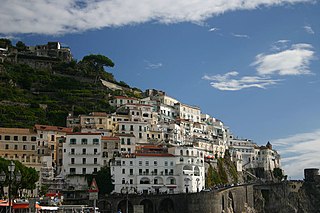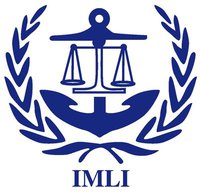 W
WThe Amalfian Laws are a code of maritime laws compiled in the 12th century in Amalfi, a town in Italy.
 W
WCanadian maritime law is based on the field of "Navigation and Shipping" vested in the Parliament of Canada by virtue of s. 91(10) of the Constitution Act, 1867.
 W
WThe Corfu Channel case was the first public international law case heard before the International Court of Justice (ICJ) between 1947 and 1949, concerning state responsibility for damages at sea, as well as the doctrine of innocent passage. A contentious case, it was the first of any type heard by the ICJ after its establishment in 1945.
 W
WSeveral states in the Caspian region, including the five littoral states of the Caspian Sea, namely the Islamic Republic of Iran, Turkmenistan, Kazakhstan, the Russian Federation, and the Republic of Azerbaijan use ad hoc diplomatic relations to build trust and goodwill as well as to boost the bargaining power of their governments.
 W
WEuropean Transport Law (ETL) is a legal journal that publishes articles, cases and case notes on transport law and transport insurance law, mainly from courts throughout Europe. It is a unique feature of ETL to provide all case law published with summaries in English, French, Spanish, German and Dutch, thereby opening up national case law in local language to academics and practitioners around the globe.
 W
WIn maritime law, flotsam, jetsam, lagan, and derelict are specific kinds of shipwreck. The words have specific nautical meanings, with legal consequences in the law of admiralty and marine salvage. A shipwreck is defined as the remains of a ship that has been wrecked—a destroyed ship at sea, whether it has sunk or is floating on the surface of the water.
 W
WThe IMO International Maritime Law Institute (IMLI) was established in 1988 under the auspices of the International Maritime Organization, a specialised agency of the United Nations. Its mission is to train specialists in maritime law. The Institute is currently headquartered in Malta, on the campus of the University of Malta.
 W
WThe Lex Claudia also known as the plebiscitum Claudianum or the lex Claudia de nave senatoris, was a Roman law passed in 218 BC. Proposed at the start of the Second Punic War, the law prohibited senators and their sons from owning an "ocean-going ship" which had a capacity of more than 300 amphorae. It was proposed by the tribune Quintus Claudius and supported by a senator Gaius Flaminius. There are no surviving contemporary sources for the law; the only ancient source to explicitly discuss it being the historian Livy. While Cicero does mention the law in his prosecution of Verres in 70 BC, this is only an indirect reference. As such, the ancient evidence is limited and only dates from nearly two centuries later. Nonetheless, modern scholarship has continued to debate the purpose and significance of the lex Claudia.
 W
WMarine salvage is the process of recovering a ship and its cargo after a shipwreck or other maritime casualty. Salvage may encompass towing, re-floating a vessel, or effecting repairs to a ship. Today, protecting the coastal environment from spillage of oil or other contaminants is a high priority. Before the invention of radio, salvage services would be given to a stricken vessel by any ship that happened to be passing by. Nowadays, most salvage is carried out by specialist salvage firms with dedicated crew and equipment.
 W
WThe Rolls of Oléron are the oldest and best-known sea law regulating medieval shipping in North-western Europe. The Rolls of Oleron were the first common sea law written in the Isle of Oléron, France, in the late 12th century, prior to 1180, later evolving to encompass Northern Europe. Any later sea laws written in Northern Europe are largely based on or inspired by the Rôles d'Oléron. Sometimes known as the "Lawes of Pleron," they also formed the basis of similar agreements among 17th and 18th century pirates, known as Articles.
 W
WThe Seaman's Manslaughter Statute, codified at 18 U.S.C. § 1115, criminalizes misconduct or negligence that result in deaths involving vessels on waters in the jurisdiction of the United States.
 W
WThe Nagasaki Spirit [1997] is an English admiralty law case on marine salvage and on the provisions of Article 13 and 14 of the 1989 Salvage Convention.